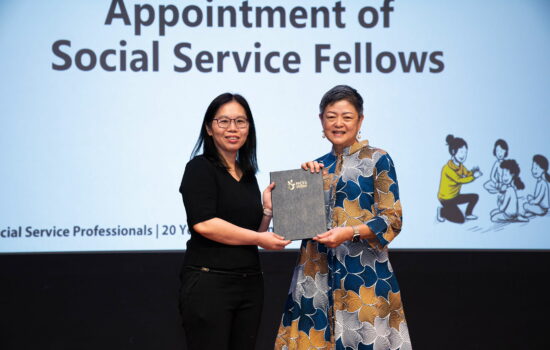Even as Singapore progresses towards being a more inclusive society by making its physical assets, such as public transport and infrastructure, more accessible for people with special needs, communication and psychosocial barriers to inclusion still exist as the general public may be apprehensive about interacting with persons who look or act differently.
SPD executive director Mr Abhimanyau Pal shares on how public education is necessary to gradually change this lack of social consciousness and empathy towards persons with special needs in a letter published in Today’s Voices on 28 December 2016.
The SPD welcomes the recommendations by the third Enabling Masterplan steering committee to build a more inclusive society for persons with disabilities. Two areas stand out in particular (“Committee calls for dedicated govt agency to cater for the disabled”; Dec 21).
Carers are often unsung heroes, and their needs are sometimes overlooked. Under the previous master plan, grants, training and trust funds were key initiatives to support carers. In the current plan, the support extends to address informational and respite needs.
These measures are important, yet more can be done to make carers feel welcome and accommodated in the community.
For one thing, carers have said that it would help if children with special needs are allowed to remain in pushchairs in buses instead of being carried and their strollers folded.
Some special needs children may have difficulty holding themselves upright, making it hard for their parents to carry them.
There are instances when members of the public react adversely to, or stare accusingly at, parents of children with autism who seem to show antisocial behaviour on public transport or in malls.
Fearing public resentment, many carers end up keeping their child with autism or other special needs at home, preventing opportunities for inclusion.
We also agree on the need to prioritise the promotion of an inclusive society by improving public outreach and understanding of persons with disabilities.
Singapore has reached a phase where we are progressively realising the United Nations Convention on the Rights of Persons with Disabilities and making public transport and infrastructure more accessible.
Employers today are more open to redesigning work and the workplace to include persons with disabilities. Our educational system is gradually being made more inclusive. Compulsory education for special needs children is a case in point.
But communication and psychosocial barriers to inclusion still exist. The general public may be apprehensive about approaching and offering help to persons who look or act differently. This suggests a lack of social consciousness and empathy towards persons with disabilities.
To address this, SPD will be expanding its advocacy and public education efforts and working on creating multiplier effects by engaging ambassadors as well as embarking on organisational accessibility projects to reach out to the masses.
We believe this to be a collective journey that will work only if all of us join hands to chisel away barriers in the mind.
We look forward to the day when carers take people with special needs out for activities without fear of a negative public response.





